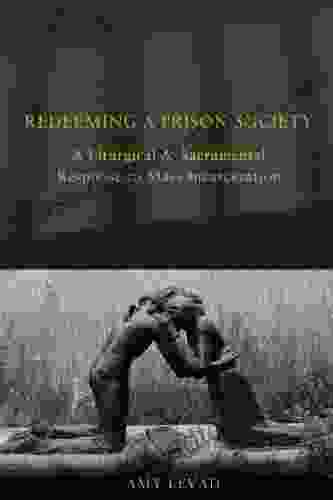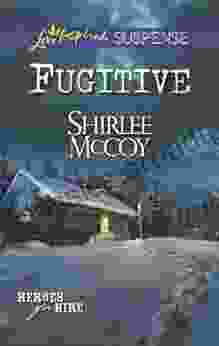Liturgical and Sacramental Response to Mass Incarceration: A Call to Action

Mass incarceration is a scourge on our nation. It disproportionately impacts communities of color, tearing families apart, destabilizing communities, and perpetuating a cycle of poverty and crime. The church has a moral imperative to respond to this crisis, and one way we can do this is through our liturgy and sacraments.
5 out of 5
| Language | : | English |
| File size | : | 757 KB |
| Text-to-Speech | : | Enabled |
| Enhanced typesetting | : | Enabled |
| Word Wise | : | Enabled |
| Print length | : | 247 pages |
| Screen Reader | : | Supported |
Liturgy and sacraments are powerful tools for healing, reconciliation, and transformation. They can provide a sense of belonging and purpose to those who have been marginalized and forgotten. They can also challenge us to confront the sin of mass incarceration and to work for a more just and equitable society.
This book is a resource for faith leaders who want to develop liturgical and sacramental responses to mass incarceration. It draws on the experience of chaplains, pastoral ministers, and other faith leaders working with incarcerated individuals and their families, and it provides practical guidance for creating worship services, rituals, and other resources that can support those affected by mass incarceration.
The book is divided into four parts:
* Part I provides an overview of the impact of mass incarceration on communities of color. * Part II explores the theological and ethical foundations for a liturgical and sacramental response to mass incarceration. * Part III offers practical guidance for developing liturgical and sacramental resources for those affected by mass incarceration. * Part IV concludes with a call to action for faith leaders to work for a more just and equitable society.
Part I: The Impact of Mass Incarceration on Communities of Color
Mass incarceration has had a devastating impact on communities of color. In the United States, African Americans are incarcerated at a rate that is five times higher than that of whites. Latinos are incarcerated at a rate that is three times higher than that of whites. Native Americans are incarcerated at a rate that is two times higher than that of whites.
Mass incarceration has torn apart families and destabilized communities. It has led to a loss of income, housing, and education. It has also contributed to the cycle of poverty and crime.
The church has a moral imperative to respond to the crisis of mass incarceration. We must work to dismantle the systems that perpetuate this injustice, and we must provide support to those who have been affected by it.
Part II: Theological and Ethical Foundations for a Liturgical and Sacramental Response to Mass Incarceration
Theology and ethics provide a strong foundation for a liturgical and sacramental response to mass incarceration. The Bible is full of stories of God's love for the marginalized and oppressed. Jesus himself was an outcast and a victim of injustice. He preached a message of love, forgiveness, and reconciliation.
The sacraments are signs of God's presence and grace. They are meant to heal, reconcile, and transform us. They can provide a sense of belonging and purpose to those who have been marginalized and forgotten.
The church has a long history of responding to social justice issues through liturgy and sacraments. In the 1960s, the church played a key role in the civil rights movement. Today, the church is called to respond to the crisis of mass incarceration.
Part III: Practical Guidance for Developing Liturgical and Sacramental Resources for Those Affected by Mass Incarceration
This part of the book provides practical guidance for developing liturgical and sacramental resources for those affected by mass incarceration. It includes chapters on:
* Creating worship services for incarcerated individuals * Developing rituals for families of incarcerated individuals * Offering pastoral care to incarcerated individuals and their families * Advocating for criminal justice reform
The book also includes a number of appendices with helpful resources, such as:
* A directory of organizations working to address mass incarceration * A list of resources for incarcerated individuals and their families * A sample worship service for incarcerated individuals
Part IV: Call to Action
The final part of the book concludes with a call to action for faith leaders to work for a more just and equitable society. The church has a moral imperative to speak out against the sin of mass incarceration and to work for a more just and equitable society.
We must work to dismantle the systems that perpetuate mass incarceration, such as the war on drugs and the school-to-prison pipeline. We must also provide support to those who have been affected by mass incarceration, such as through prison visitation, reentry programs, and advocacy for criminal justice reform.
The church can play a vital role in healing the wounds of mass incarceration and in creating a more just and equitable society. Let us answer the call to action and work together to make a difference.
Mass incarceration is a crisis that demands a response from the church. Liturgical and sacraments can be powerful tools for healing, reconciliation, and transformation. They can provide a sense of belonging and purpose to those who have been marginalized and forgotten. They can also challenge us to confront the sin of mass incarceration and to work for a more just and equitable society.
This book is a resource for faith leaders who want to develop liturgical and sacramental responses to mass incarceration. It provides practical guidance for creating worship services, rituals, and other resources that can support those affected by mass incarceration. It also concludes with a call to action for faith leaders to work for a more just and equitable society.
Let us answer the call to action and work together to make a difference.
5 out of 5
| Language | : | English |
| File size | : | 757 KB |
| Text-to-Speech | : | Enabled |
| Enhanced typesetting | : | Enabled |
| Word Wise | : | Enabled |
| Print length | : | 247 pages |
| Screen Reader | : | Supported |
Do you want to contribute by writing guest posts on this blog?
Please contact us and send us a resume of previous articles that you have written.
 Book
Book Novel
Novel Page
Page Chapter
Chapter Text
Text Story
Story Genre
Genre Reader
Reader Library
Library Paperback
Paperback E-book
E-book Magazine
Magazine Newspaper
Newspaper Paragraph
Paragraph Sentence
Sentence Bookmark
Bookmark Shelf
Shelf Glossary
Glossary Bibliography
Bibliography Foreword
Foreword Preface
Preface Synopsis
Synopsis Annotation
Annotation Footnote
Footnote Manuscript
Manuscript Scroll
Scroll Codex
Codex Tome
Tome Bestseller
Bestseller Classics
Classics Library card
Library card Narrative
Narrative Biography
Biography Autobiography
Autobiography Memoir
Memoir Reference
Reference Encyclopedia
Encyclopedia Erik Dahlman
Erik Dahlman Michael Prestwich
Michael Prestwich America Test Prep Library
America Test Prep Library Jorge Iber
Jorge Iber Upton Sinclair
Upton Sinclair Beth Evans
Beth Evans Amy Shojai
Amy Shojai Angus Mclaren
Angus Mclaren Sniff Petrol
Sniff Petrol Ellen L Bowen
Ellen L Bowen John Crace
John Crace James Rallison
James Rallison Anirban Bandyopadhyay
Anirban Bandyopadhyay Corinne Sweet
Corinne Sweet Angus Fletcher
Angus Fletcher Matt Zandstra
Matt Zandstra Paul Mcgee
Paul Mcgee Angelina Black
Angelina Black Andrea Lieberstein
Andrea Lieberstein Robert Lauterberg
Robert Lauterberg
Light bulbAdvertise smarter! Our strategic ad space ensures maximum exposure. Reserve your spot today!

 Mario Vargas LlosaGet Fast and Reduce Reaction Time Using Visual Perceptual Controls: The...
Mario Vargas LlosaGet Fast and Reduce Reaction Time Using Visual Perceptual Controls: The... Holden BellFollow ·18.1k
Holden BellFollow ·18.1k Cody BlairFollow ·9.2k
Cody BlairFollow ·9.2k Ethan GrayFollow ·12k
Ethan GrayFollow ·12k Evan HayesFollow ·9.5k
Evan HayesFollow ·9.5k Pat MitchellFollow ·4.6k
Pat MitchellFollow ·4.6k VoltaireFollow ·16.5k
VoltaireFollow ·16.5k Louis HayesFollow ·4.8k
Louis HayesFollow ·4.8k Marcel ProustFollow ·16.7k
Marcel ProustFollow ·16.7k
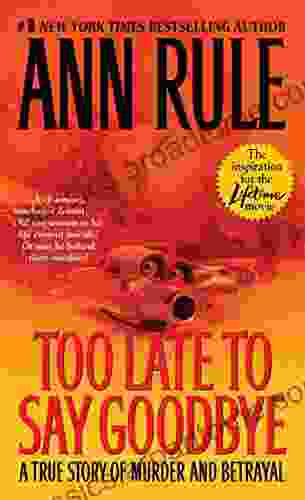
 Braden Ward
Braden WardThe True Story of Murder and Betrayal
In a small town where...
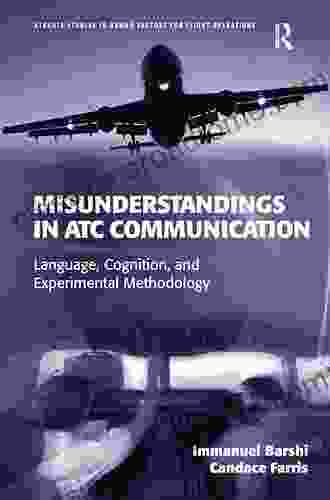
 W. Somerset Maugham
W. Somerset MaughamUnraveling the Complexities of Human Language: A...
Language is a fundamental aspect of human...
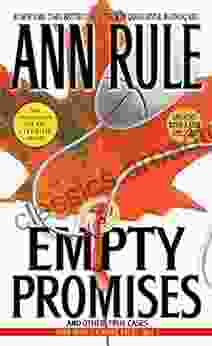
 Ibrahim Blair
Ibrahim BlairTrue Crime Tales That Will Keep You on the Edge of Your...
Prepare to be...
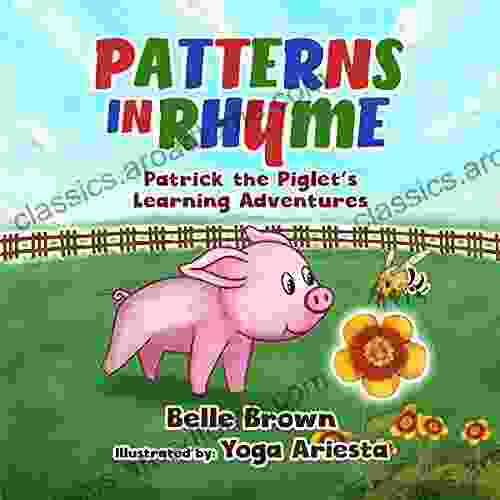
 Rick Nelson
Rick NelsonPatterns In Rhyme: A Journey of Discovery with Patrick...
Welcome to the...
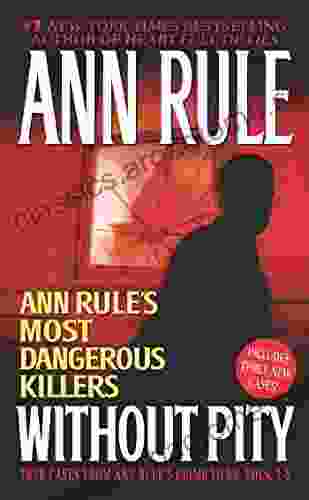
 Edgar Hayes
Edgar HayesWithout Pity: Unmasking the Evil Within
In the realm of true...

 Cooper Bell
Cooper BellFannie Lou Hamer's Indelible Legacy: Unraveling the...
The Black Freedom Movement, a pivotal...
5 out of 5
| Language | : | English |
| File size | : | 757 KB |
| Text-to-Speech | : | Enabled |
| Enhanced typesetting | : | Enabled |
| Word Wise | : | Enabled |
| Print length | : | 247 pages |
| Screen Reader | : | Supported |


